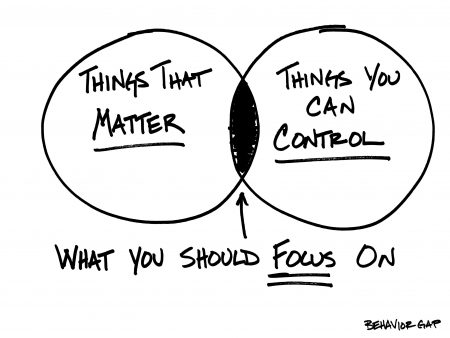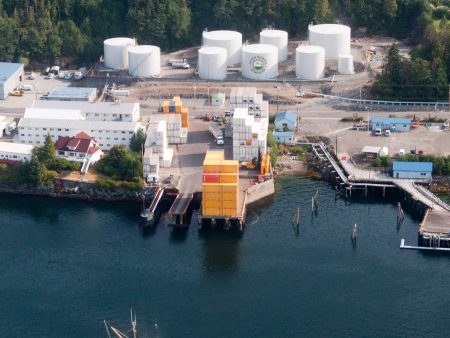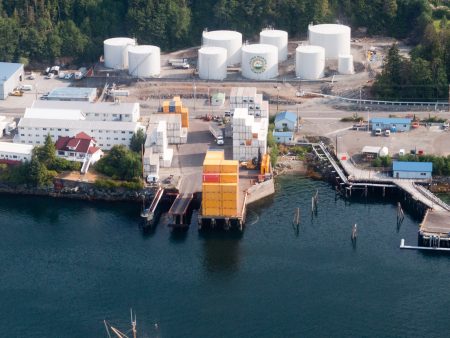Is Bons Legit?
Are you considering Bons as an option for your next gambling endeavor? Are you wondering if Bons is a legitimate and trustworthy online betting site? If so, look no further – we’ve got the answer for you and will give you an in-depth analysis of this betting platform.
Background of Bons
Bons is an online betting and gambling platform that was founded in 2016 and targets the India gambling market. It is run by a team of industry professionals from countries including India, Hong Kong, and the United Kingdom. The company offers a variety of casino and betting options, including Slots, Blackjack, Roulette, and more.
Bons Security and Reliability
Bons is a very reliable and secure gambling platform. The website is licensed and regulated by the Gaming Authority of India. This means that it adheres to strict safety and security guidelines, and the company regularly monitors its own operation. In terms of financial transaction security, the website uses the latest SSL encryption to ensure all transactions are secure and private.
Bonuses and Promotions at Bons
Bons offers several bonuses and promotions to its customers. These include:
- Welcome Bonus: This is a sign up bonus given to new customers who sign up for Bons. It is typically a percentage of the customer’s deposit amount.
- Referral Bonus: This is a bonus given to existing customers who refer new customers to Bons.
- VIP Bonus: This is a bonus given to customers who reach certain VIP levels on the website. These bonuses are typically redemptions for rewards or discounts at affiliated stores.
Customer Service at Bons
Bons offers 24/7 customer care to its customers. Customers can contact the customer care team at any time via phone, email, or live chat. The response time is usually very fast and the customer service team is very knowledgeable.
Conclusion
In conclusion, Bons is a legitimate and trustworthy online betting and gambling site. The website is highly secure and regularly monitored by the Gaming Authority of India. Additionally, Bons offers several bonuses and promotions to its customers, as well as excellent customer service. Therefore, we believe that Bons is an excellent choice for your next gambling endeavor.
Is Bons accredited?
Yes, Bons is accredited by the Distance education Accrediting Commission (DEAC).
Are there any other accredited bonsai courses?
Yes, there are many other bonsai courses that are accredited. These include the American Bonsai Society, International Bonsai Arboretum, Bonsai Art School Iroha, National Bonsai & Penjing Museum, and the Bonsai Garden at Lake Merritt.
What qualifications do I need to take an accredited bonsai course?
Requirements to take an accredited bonsai course vary depending on the institution offering the course. Generally, you will need a high school diploma or equivalent, and you may need to show proof of knowledge in horticulture or botany. In some cases, prior experience with bonsai or a related field may be required.
What kind of degree do you need to take an accredited bonsai course?
The type of degree required to take an accredited bonsai course depends on the institution offering the course. Some courses may be offered without any educational or professional requirement, while others could require a high school diploma, associate’s degree, or higher.
What qualifications are needed to teach an accredited bonsai course?
The qualifications necessary to teach an accredited bonsai course will vary from school to school, so be sure to check requirements with the institution offering the program. Generally, a teaching instructor should have extensive knowledge and experience with bonsai and related plants. Most schools also require that instructors have a minimum of a high school diploma or equivalent and a valid teaching certification or license from an appropriate agency related to horticulture or plant science. Many schools also prefer that instructors have a college-level degree in horticulture, botany, plant science, or a related field. Teaching experience and strong communication skills often set applicants apart from the competition.
What type of certification do you need to teach an accredited bonsai course?
Since the accreditation of courses in bonsai can vary greatly by location, there is no one universal certification requirement. Depending on where the course would take place, you may need to meet certain standards set by the local government or educational institution, such as proof of plant and tree care experience or successful completion of an instructor certification program. Check with the institution at which you’d like to teach to ensure that you meet all of their certification requirements.
What qualifications do you need to teach a bonsai course?
The qualifications needed to teach a bonsai course will vary depending on the type of bonsai course being offered. Usually, a basic understanding of gardening and horticulture is necessary. Teaching experience is also beneficial, but not always required if the instructor has extensive bonsai cultivation experience. Depending on the complexity of the course, instructors may also need formal qualifications in the areas of horticulture, botany, or art. A valid teaching certification or license may also be required by the school offering the course.
What type of education do you need to teach a bonsai course?
To teach a bonsai course, you should have at least a basic understanding of bonsai cultivation and design. It is recommended to have an education in horticulture, botany, or a related field to have a detailed understanding of the plant’s needs and how to best grow and take care of them. Additionally, having additional certifications related to bonsai will help you stand out to potential employers or those who would like to take your course.
What qualifications do you need to teach a bonsai course?
In order to teach a bonsai course, you would typically need to have a considerable amount of knowledge and experience in the art of bonsai. Youmay need to hold a certification from a formal artistic or horticultural program or otherwise demonstrate a degree of mastery in the craft. Additionally, some teaching experience would be beneficial when it comes to creating and delivering a bonsai course.
What qualifications are required to become a bonsai expert?
There is no official certification required to become a bonsai expert. However, a good understanding of the techniques and aesthetics involved in planting, caring for, and styling bonsai trees is essential. Hands-on experience, as well as knowledge of bonsai horticulture, are also important. Many experts recommend obtaining training and guidance from a bonsai school, teacher, or mentor in order to develop the necessary skills.
What type of training do you need to become a bonsai expert?
Becoming a bonsai expert requires a combination of formal training and hands-on experience. Formal training may come from workshops, online courses, or apprenticeships from a more experienced bonsai gardener. Depending on the gardener’s level of expertise, a bonsai expert may also require advanced courses in horticulture, plant science, or even fine arts. Additionally, hands-on experience with the care and maintenance of bonsai trees is essential, and bonsai experts may find it beneficial to practice pruning, potting, wiring, and styling techniques regularly.
What is the best way to learn about bonsai?
The best way to learn about bonsai tree care and the process of creating a bonsai is to study with an experienced bonsai master. If you’re unfamiliar with the term, a bonsai master is someone who has dedicated years of study and practice to the art of bonsai. They possess the knowledge necessary to help you properly create and cultivate a bonsai tree. After studying bonsai from a master, branching out to reading books and engaging in online forums can be helpful to further your knowledge. Attending conferences, workshops, and expos can be another excellent way of learning about the art of bonsai.
What tools are needed to practice bonsai?
To practice bonsai, you will need the following tools:
-Bonsai shears
-Bonsai Wire Cutters
-Bonsai Knob Cutters
-Bonsai Root Pruner
-Wire Bending Jig
-Root Hook
-Bonsai Pots
-Bonsai Fertilizer
-Bamboo Skewers
-Rake
-Pliers
-Concave Cutter
-Tweezers
-Grafting Wax
-Bonsai Turntable
-Pruning Saws
-Bonsai Apron
-Clay Figurines
-Lime Sulfur Mix
-Misting Bottle
-Watering Pot
-Bonsai Books.
What is the best soil for bonsai trees?
The best soil for bonsai trees is a mix of soil, organic matter, and inorganic matter such as perlite and pumice. This will ensure that the soil is well-draining but still has enough nutrients to keep your tree healthy. Depending on the species of bonsai, it might require different components in the mix, so asking an experienced bonsai grower or nursery is your best bet when selecting the right soil mix for your tree.
What kind of pot is best for bonsai trees?
The best kind of pot for bonsai trees is one that is shallow, preferably with a wide base. It should also have holes in the bottom for proper drainage and an unglazed finish. This way the roots will be able to breathe and won’t accumulate moisture—which is important for a healthy bonsai tree.
What type of soil should be used for bonsai trees?
Bonsai trees should be planted in a special bonsai mix soil, which typically includes components such as akadama, organic components such as compost, perlite for better drainage, and a small amount of slow-release fertilizer. The proportions of each component will depend on the type of bonsai tree and should be determined by an experienced bonsai grower or nursery.
What types of soil can be mixed to create bonsai soil?
A good mix for bonsai soil typically consists of akadama, lava rock, pumice, and decomposed granite. It is important to note that different bonsai species may require different soil mixtures and that soil suitable for one species may harm another species. As a rule of thumb, the soil should be light, well-draining, airy, and slightly acidic.
What are the best ingredients to use in bonsai soil?
The best ingredients to use in bonsai soil are Akadama, Kuruma Zutsu, Lava Rock, Pumice, and Pine Bark Fines. Akadama provides essential drainage to the soil, helps retain moisture, and helps maintain pH balance. Kuruma Zutsu helps provide structural stability and anchoring in the soil. Lava Rock is great for drainage, aeration, and keeps moisture from collecting around the roots of the tree. Pumice is useful for its aeration and drainage properties and the ability to hold nutrients. Lastly, Pine Bark Fines is a strong absorbent and has great porosity for air and water retention.
What is the ratio of bonsai soil components?
The bonsai soil mix is made up of three main components: 26-32% organic material, 26-32% inorganic material, and 6-8% water retention material. The ratio of the components should vary based on the specific type of bonsai tree being grown. It is always best to consult an expert on the specific ratios for each type of bonsai.
What type of soil is best for bonsai?
Bonsai trees thrive in a well-draining soil with good aeration, such as akadama, pumice, lava rock, or a combination of these soils. Ideally, the composition of the soil should match the species of bonsai tree and should be amended to match the growing conditions. The soil should be light and slightly acidic, and should be amended and refreshed with organic material on a regular basis.
What types of soil are not good for bonsai?
Sandy soil, heavy clay soil, and any soil with a high salt content are not suitable for bonsai, as they do not hold enough moisture or nutrients necessary for optimal growth. Soil that is too alkaline for the species of tree being grown is also not suitable. Composted manure should not be used as this can introduce disease to the bonsai.
What are the characteristics of poor soil for bonsai?
1. Poor drainage- Poorly-drained soils can cause root rot due to water pooling and can stunt growth of the bonsai.
2. Nutrient deficiencies- Poor soils lack essential macro and micronutrients like nitrogen, phosphorus, potassium, iron, and magnesium necessary for proper bonsai tree growth.
3. Compaction- Tightly-packed soils can make it difficult for water and drainage to escape, which can prevent bonsai roots from developing properly.
4. Low pH- Bonsai trees prefer slightly acidic soils for optimal growth, so a low pH can impede development.
5. High salinity- High salt content in the soil can stress and damage bonsai trees, making them more prone to disease and insect infestations.
What type of soil should be used for bonsai?
The best soil for bonsai trees is a fast-draining, well-aerated potting soil consisting of inorganic material like coarse river sand and bark, along with some organic material like slow-release fertilizer, pumice, and akadama. It is important to use a soil mix that drains quickly yet retains sufficient moisture and nutrients to support healthy root growth.
What soil mix is best for bonsai?
The best soil mix for bonsai depends on the type of bonsai tree you have. Generally, a good soil mix will include equal parts coarse inorganic material, such as pumice or lava rock, and organic material, such as bark, compost, and peat moss. Additional things to consider include pH level, drainage, and water-retention. Akadama, a clay-like soil conditioner, is also commonly used in bonsai soil mixes as it helps to retain moisture and provides essential minerals and trace elements.
What type of soil should I use for bonsai tree planting?
For bonsai tree planting, you should use a well-draining soil mix that is composed of equal parts of sand, loam and organic matter such as compost and perlite. This soil mix will provide your bonsai tree with the necessary nutrition and a well-oxygenated root system. You can also amend the soil with a slow-release fertilizer, as some bonsai trees require more nutrients than others. Additionally, a soil mix with Akadama will help to retain moisture and provide essential minerals and trace elements.
What kind of container should I use for a bonsai tree planting?
You should use a shallow glazed ceramic container or a shallow plastic container for your bonsai tree planting. The container should be slightly wider than the bonsai tree’s root ball, but no more than 2 or 3 inches wider. Make sure that the container has drainage holes in the bottom, and it is recommended that you line the bottom of the container with small stones or pebbles to ensure proper drainage.
What are the best soil mixtures for a bonsai tree planting?
1. Akadama and Pumice (2:1 ratio)
2. Akadama, Granite, Pumice, and Organics (2:1:1:1 ratio)
3. Pine Bark, Akadama, and Organics (2:1:2 ratio)
4. Dexamethasone, Akadama, Lava Rock, and Organics (3:1:1:1 ratio)
5. Red Cedar Bark, Akadama, And Organics (2:1:1 ratio)













